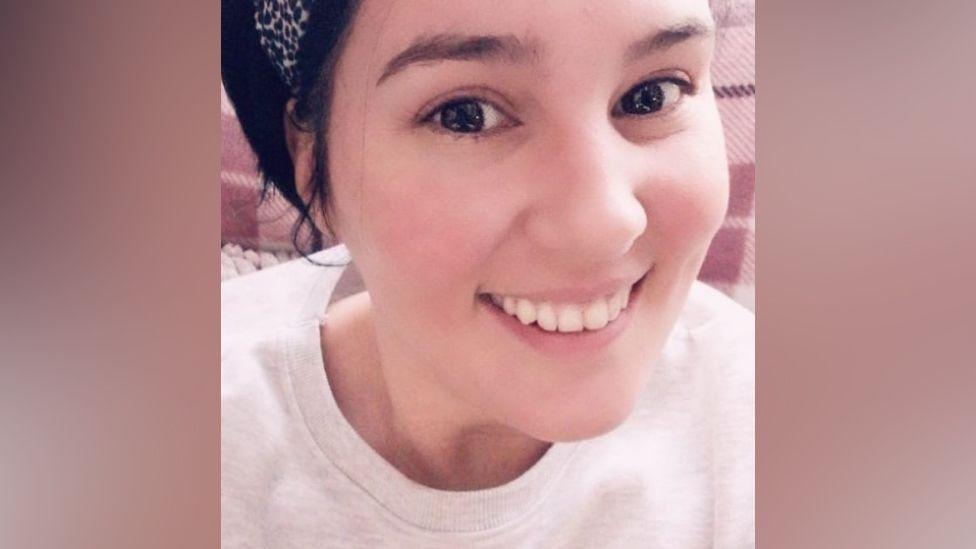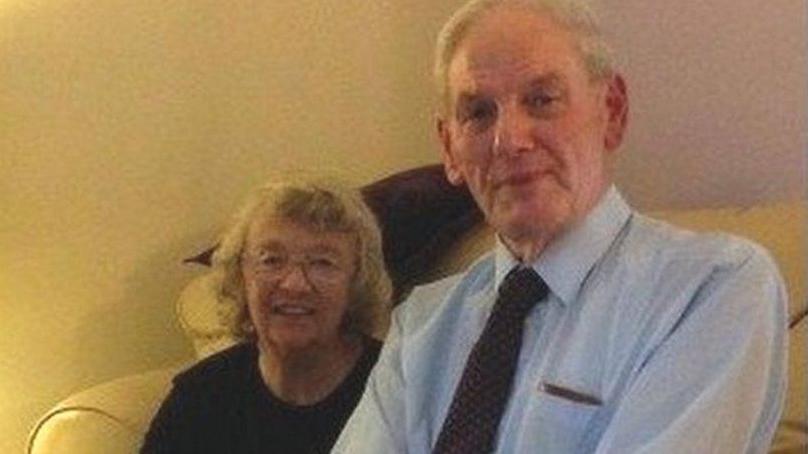No care plan for Co-op killer, inquest told

Zara Radcliffe was diagnosed with paranoid schizophrenia before killing John Rees
- Published
No care and treatment plan was in place for a woman with paranoid schizophrenia who went on to kill an elderly man weeks after leaving hospital, an inquest has heard.
John Rees, 88, died after being set upon by Zara Radcliffe at the Co-op in Penygraig, Rhondda Cynon Taf, in May 2020.
Radcliffe was released from the Royal Glamorgan Hospital on 24 February of that year after receiving inpatient care for about four months, during which time the court heard her mental health improved.
Laura Morse, a care coordinator who oversaw Radcliffe’s treatment after her release, said she only met her once on 2 March because face-to-face visits were stopped shortly after due to the rise of Covid-19.
Co-op killer had history of violence, inquest told
- Published8 July 2024
Man, 88, killed in Co-op was trying to stop attack
- Published22 October 2020
Warning signs missed in shop killing, report finds
- Published19 May 2023
In a statement to police which was read to the court, Ms Morse described Radcliffe as being "normal" and "quiet" during this meeting.
"She told me she was hearing voices but these were reassuring. We talked about her moving out of her parents’ house and going back to college."
The court heard about two other phone calls Ms Morse had with either Radcliffe or her mother where "no concerns" were raised.
No care and treatment plan was drawn up for Radcliffe which, according to guidance, should have been done within six weeks.
Asked why no plan was in place, Ms Morse told the court it been a "very chaotic" time and her role and guidance changed "on a daily basis", but could not give "a definite answer".

John Rees was stabbed by Zara Radcliffe while his wife Eunice was waiting for him in a car outside the shop
The inquest had earlier heard about a blood sample taken from by Radcliffe on 5 May, the day of the attack, showed traces of cannabis and diazepam.
Analysis of a hair sample taken a day later showed traces of diazepam, cannabis, cocaine, heroin and amphetamines.
The court was told this would be consistent with use between late January and late April, but could not be used to establish use in the days directly before the killing.
The court had heard Racliffe had become an "informal patient" and was able to leave the unit at the hospital for specific periods.
On 13 February, after one such occasion, she took a voluntary drugs test which showed signs of cocaine use.
Dr Kishore Kale, a psychiatrist who was the responsible clinician for Radcliffe from 7 February until her discharge two-and-a-half weeks later, said this was not considered a "setback" in her treatment.
He said the evidence suggested she was "mentally improving" and that he was satisfied she could be discharged.
The court heard the discharge plan set the next psychiatric appointment for four months’ time.
Coroner Graeme Hughes said that appeared to be "a long time" for someone with paranoid schizophrenia and an "extensive" medical history.
“I am absolutely with you. That’s how it looks on paper,” Dr Kale replied, adding that the team in charge of care could bring that forward if they felt it necessary.
The inquest continues.